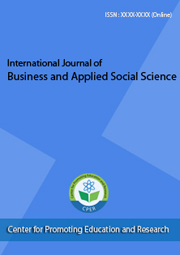current
Table of Contents
Articles
Author(s): Hajah Nur Annisa Haji Sarbini, Professor Dr Razali Mat Zin
Abstract:
Currently, all countries in the world are shocked by a global pandemic called Corona Virus Disease (COVID-19). This virus attack has had a huge impact on humans in the world and has changed many important aspects of life such as health, economy, politics, and also security. We have seen how COVID-19 has become a major threat to all organizations in the world, which has led to changes in work methods and also human interaction within the organization. The working method shifting in question is a change in the organization in giving tasks and responsibilities to its employees by “prohibiting” its employees to work in the office and gather in a room. This prohibition is not intended to destroy the performance of the organization but rather aims to prevent the spread of COVID-19, which until now continues to add the number of its victims globally. The concept of Work from Home (WFH) has been the subject of discussion and global study theme by researchers in the past 10 years, but this global phenomenon begins to emerge at the coming of the COVID-19 attack and becomes an alternative strategy for many organizations. However, in Brunei, this Working from Home (WFH) initiative or arrangement has not been widely implemented yet and become a work culture in the organization, although there are still a few organizations that have given the flexible arrangement of work for their employees. WFH, which is a phenomenon today in Brunei, is not a work culture found in many organizations, especially government organizations that are very bound by direct supervision, discipline, and also public services. In reality, WFH is not fully understood by the employees, they feel a lot of dilemma conditions such as the mindset that the home is where they rest while work is generally done in the office. This dilemma condition sometimes creates conflicts within the family even though WFH creates flexibility of time and place. Therefore, this paper tries to excavate and compare the different WFH arrangements that have been executed by three higher education institutions in Brunei following the de-escalation plans that have been widely disseminated by the government during the active spread of COVID-19. The findings suggest that different institutions have different ways of interpreting and implementing the WFH arrangements. This paper concludes with preliminary suggestions on managerial perspectives and implementation of flexible working arrangements like WFH and further research to be done in tackling the perceptual attitudes of employees undergoing the WFH initiative.






